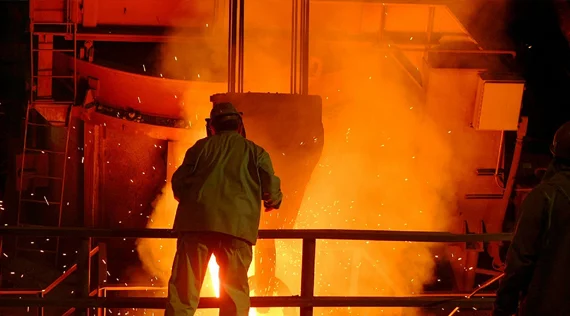China’s $8.5 Billion in Steel Spurs Latin America Toward Tariffs
Steel News | 2024-05-21 11:27:38
Pushing back against China, however, can be fraught with risks — particularly for smaller export-driven economies that rely on Chinese demand for their raw material sales, from cherries to copper.
SEATTLE (Scrap Monster): One after another, Latin American nations are following in the footsteps of the US and Europe by imposing prohibitive tariffs on Chinese imports — a strain in what’s been an otherwise cozy relationship.
Mexico, Chile and Brazil have hiked — and in some cases more than doubled — duties on steel products from China over the past several weeks. Colombia may be about to follow suit.
The levies may seem out of turn, given how the Asian superpower has entrenched itself in Latin America in recent years. China has become the biggest buyer of raw materials from the region and a major investor. At the same time, Latin America has given China another market to sell its goods as it faces stiff US and European tariffs. It’s sending nearly 10 million tons of steel a year, valued at $8.5 billion, to Latin America — a huge jump from a mere 80,500 tons in 2000, according to regional steel association Alacero.
Now, that relationship is being tested by a global turn toward protectionism, and a flood of Chinese imports that threatens to put Latin American steel producers out of business and risk a combined 1.4 million jobs.
“This is an important test of China’s interests and intentions,” said Margaret Myers, director of the Asia and Latin America Program at the Inter-American Dialogue. It’s also a “test of Latin American resolve in challenging what is a critical economic partner.”
Brazil will soon introduce a tariff-rate quota system to stop predatory pricing of imported alloy. While the official announcement didn’t mention China, last year’s 62% surge in Chinese shipments to 2.9 million tons is behind the measure, said people briefed on the matter.
“It’s a sign to the world that Brazil has rules — it’s not a no man’s land,” said Marco Polo de Mello Lopes, the head of industry association Aco Brasil, who held talks with the government for nine months before it announced the new rules.
Pushing back against China, however, can be fraught with risks — particularly for smaller export-driven economies that rely on Chinese demand for their raw material sales, from cherries to copper.
There are plenty of examples of Beijing suspending purchases and investments in reaction to what it sees as unfair and unilateral measures. There was a brief period during which China banned soybean products from Argentina in response to wide-ranging anti-dumping measures. Following the 2018 arrest of a Huawei executive in Vancouver, China blocked canola shipments from two Canadian companies.
China’s Ministry of Commerce didn’t reply to a request for comment on the recent tariffs imposed by Latin American nations.
For the self-proclaimed leader of the Global South, there’s also a broader symbolic risk that comes with a potential united front against its exports.
“In some ways, these developing countries are the better bellwether of global trade sentiment towards China,” said Christopher Beddor, deputy China research director at Gavekal Dragonomics. “They suggest the protectionist walls against Chinese goods are going up in many disparate places, not just rich countries.”
Courtesy: www.yahoo.com
 By
By 